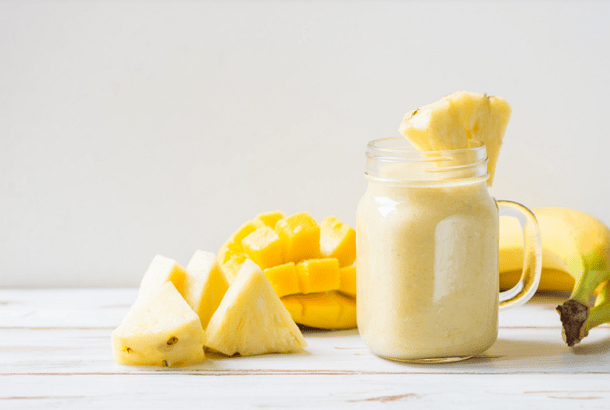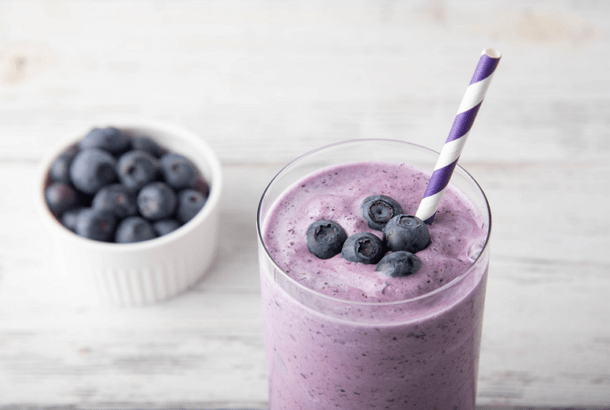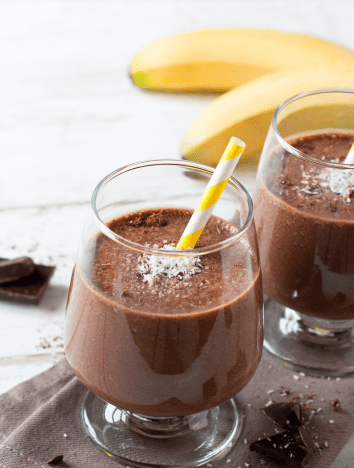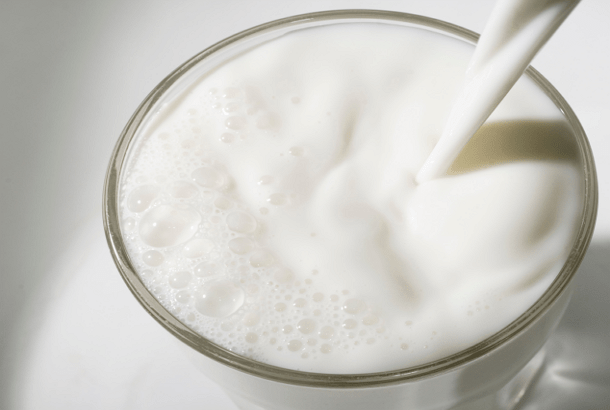Coconut smoothie have become a sensation in the world of healthy beverages, offering a delectable and refreshing way to satisfy your taste buds while nourishing your body. Packed with tropical flavors and filled with numerous health benefits, these creamy concoctions have gained popularity for a good reason.
Whether you’re seeking a post-workout recovery drink, a morning pick-me-up, or a tasty treat, coconut smoothies are sure to hit the spot. In this article, we will explore the wonders of coconut smoothie, their benefits, and some mouthwatering recipes to try at home.
What Makes Coconut Smoothies Special

The essential ingredient that distinguishes coconut smoothies is coconut. Coconuts are well-known for their high nutritious content and unusual flavor. Coconuts are rich in minerals, vitamins, and healthy fats, and they provide numerous health benefits. Its unique characteristics make them a beneficial addition to any diet, from maintaining heart health to strengthening the immune system and helping digestion.
Additionally, the base of most coconut smoothies, coconut milk or coconut water, is a dairy-free alternative that caters to a wide range of dietary needs. It is naturally lactose-free, making it a good choice for those who are lactose intolerant or live a vegan diet. Coconut milk also lends a creamy texture and a somewhat sweet flavor to smoothies, increasing their overall appeal.
Health Benefits of Coconut Smoothies
Hydration
Coconut water, often used as a base in coconut smoothies, is incredibly hydrating. It contains electrolytes like potassium, magnesium, and sodium, which help replenish fluids and restore hydration levels in the body.
Improved Digestion
Coconuts are a great source of dietary fiber, aiding in digestion and promoting a healthy gut. Including coconut smoothies in your diet can help alleviate digestive issues such as constipation and bloating.
Enhanced Immunity
Coconut milk contains lauric acid, a compound known for its antimicrobial properties. Lauric acid can help strengthen the immune system and protect against bacterial and viral infections.
Heart Health
Coconut is a superfood that is packed with nutrients and health benefits. It contains medium-chain triglycerides (MCTs), which are well-digested and converted into energy. MCTs also help to boost metabolism and aid in weight loss. Coconut also promotes healthy skin and hair.
Coconut Smoothie Recipes
Making a coconut smoothie is quick and easy. Here’s an easy recipe to get you started:
1. Coconut Milk Smoothie

Ingredients:
- 1 cup coconut milk
- 1 ripe banana
- 1 cup frozen pineapple chunks
- 1 ripe mango
- 1 tablespoon honey
- 1 teaspoon vanilla extract
Instructions:
- Add all the ingredients to a blender.
- Blend until smooth and creamy.
- Pour into a glass and enjoy.
2. Blueberry Coconut Smoothie

This smoothie recipe is a great way to start your day. It is packed with antioxidants and healthy fats that keep you full and satisfied.
Ingredients:
- 1 cup frozen blueberries
- 1/2 cup coconut milk
- 1/2 cup plain Greek yogurt
- 1 tbsp honey
- 1/2 tsp vanilla extract
- 1/2 cup ice cubes
Instructions:
- Combine all ingredients in a blender
- Blend until smooth.
- If it is too thick, add some coconut water to thin it out.
- Pour into a glass and enjoy.
3. Chocolate Coconut Smoothie

Here is a recipe for a delicious smoothie for you:
Ingredients:
- 1 cup unsweetened coconut milk
- 1 ripe banana
- 1 tbsp unsweetened cocoa powder
- 1/2 cup unsweetened shredded coconut
- 1/2 tsp vanilla extract
- 1 tsp maple syrup (optional)
- 1/2 cup ice cubes
Instructions:
- Mix all ingredients into a blender and blend until smooth.
- Serve and enjoy!
This recipe is filled with flavor and healthful fats. The cocoa powder adds a chocolatey kick, while the banana and vanilla extract provide natural sweetness. It’s a great way to satisfy your sweet tooth while still maintaining a healthy diet.
Coconut Milk vs. Coconut Water
When choosing coconut milk and coconut water for a coconut smoothie, it’s essential to consider their differences. Coconut milk is made by blending coconut meat with water, while coconut water is the clear liquid inside a coconut. Coconut milk is higher in fat and calories, while coconut water is higher in carbohydrates and electrolytes like potassium.
For a creamy and rich coconut smoothie, I recommend full-fat coconut milk. If you want a lighter and more refreshing smoothie, opt for coconut water. You can also mix the two for a balance of creaminess and hydration.
When I go to a grocery store I always read the labels, and also, it’s important to choose products without added sugars or artificial flavors. So, I suggest that you should look for an organic and non-GMO option if possible.
How To Know If Coconut Milk Is Bad

To know if coconut milk is bad, you can perform a simple smell and visual test. If the coconut milk smells sour or has a rancid odor, it has likely gone bad. Additionally, if the milk has separated into solid and liquid components or has developed mold, it is spoiled and should not be consumed.
Keep in mind that unopened cans of coconut milk can last for up to two to five years, while opened cans should be consumed within a week and refrigerated cartons within seven to ten days of opening. Always check the expiration date on the can or carton before using the coconut milk.
If you’re unsure whether the coconut milk is safe to use, it’s better to err on the side of caution and discard it. Consuming spoiled coconut milk can lead to food poisoning and other health issues.
Can You Put Coconut Oil in Smoothies?
Yes, you can put coconut oil in smoothies. Coconut oil is a great way to add healthy fats to your smoothies, which can help keep you full and satisfied for longer. It also has a unique flavor that can add a tropical twist to your smoothie. However, use coconut oil in moderation as it is high in calories and saturated fat.
To add coconut oil to a smoothie, simply melt the oil first and then blend it with the other ingredients. This will help prevent clumping and ensure that the coconut oil is evenly distributed throughout the smoothie.
It’s worth noting that coconut oil can solidify at cooler temperatures, so if you plan to make a smoothie ahead of time and store it in the fridge, you may notice that the coconut oil solidifies and forms small chunks in the smoothie. To avoid this, you can let the smoothie sit at room temperature for a few minutes before drinking, or you can use liquid coconut oil instead of solid.
Adding coconut oil to your smoothies can be a healthy and delicious way to boost your nutrient intake and add variety to your diet.
FAQs
Is coconut milk high in calories?
Yes, it is high in calories and fat. However, it is also rich in nutrients and can be a healthy addition to your diet in moderation.
Can I use fresh fruit instead of frozen fruit in my coconut smoothie?
Definitely, you can use fresh fruit instead of frozen. However, using frozen fruit will give your smoothie a creamier texture.
Can I make a coconut smoothie without a blender?
No, a blender is essential to make a coconut smoothie. But, you can use a handheld immersion blender if you don’t have a traditional blender.
Can I use canned coconut milk or coconut water in my smoothie?
Of course, both canned coconut milk and coconut water can be used in coconut smoothies. Coconut milk adds richness and creaminess, while coconut water adds a lighter and more hydrating element. You can choose based on your preference and the desired consistency of your smoothie.
Can I add protein powder to the coconut smoothie?
Yes, you can add protein powder to your coconut smoothie to boost its protein content. Choose a flavor that complements the other ingredients, such as vanilla or coconut-flavored protein powder. Alternatively, you can use plant-based protein powders like pea, hemp, or brown rice protein.
Are coconut smoothies suitable for weight loss?
Coconut smoothies can be a part of a balanced weight-loss diet. However, it’s important to watch the overall calorie content and portion sizes. Coconut and its derivatives can be high in calories, so it’s advisable to incorporate other low-calorie ingredients like leafy greens and limit the amount of added sweeteners or high-calorie mix-ins.
Can I make a coconut smoothie without dairy?
Absolutely! Coconut smoothies can be an excellent dairy-free alternative. You can use coconut milk, coconut water, or even coconut yogurt as a base. Combine it with fruits, vegetables, and other add-ins to create a delicious and creamy dairy-free smoothie.
Are there any variations of coconut smoothies?
Surely! Coconut smoothies can be customized in numerous ways. You can experiment with different fruits, such as mango, pineapple, banana, almonds, or berries, to create various flavor combinations. Additionally, you can add spinach or kale for a green coconut smoothie or incorporate spices like cinnamon or turmeric for added depth of flavor.
Can I freeze coconut smoothies?
Yes, you can freeze coconut smoothies. Prepare your smoothie as usual, then transfer it to an airtight container. When you’re ready to enjoy it, let it thaw in the refrigerator or blend it briefly to achieve a slushy consistency.
Conclusion
Coconut smoothies are a delicious and nutritious way to start the day or enjoy as a snack. With their numerous health benefits and easy preparation, they are a great addition to any diet. Give our recipe a try and experiment with different variations to find your perfect coconut smoothie. Don’t forget to check out our FAQs for more information and tips on making the perfect coconut smoothie.
To know more about coconut guides, read here.



Comments are closed.